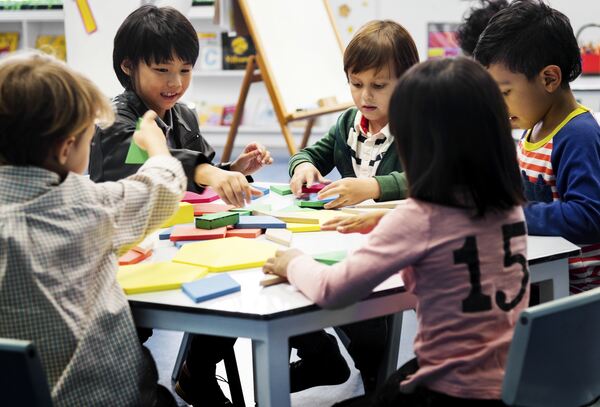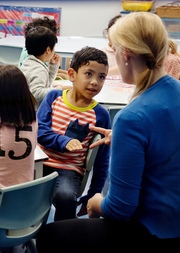The Benefits of Kindergarten that Parents Need to Know
The basis for a child’s future academic achievement and personal development is laid during the critical kindergarten years of their academic careers. During this year, children gain crucial knowledge and experiences between preschool and primary school that support their overall development.
Knowing the advantages of kindergarten as a parent will help you make wise choices regarding your child’s education. If you want to learn more about these things, here are five of the most critical kindergarten benefits that every parent should know, so make sure you start learning more about them as soon as possible.
Academic preparedness and cognitive development
The kindergarten years are crucial in laying the groundwork for future academic achievement. It teaches students the fundamentals of reading, writing, and elementary math in fun and age-appropriate ways. Children gain crucial cognitive skills, such as problem-solving, critical thinking, and logical reasoning, through interactive activities, games, and hands-on experiences. They develop their ability to pay attention, lengthen their attention span, and sharpen their memory. Children are encouraged to express their imagination and creativity in kindergarten via playing, storytelling, music, and art.
In kindergarten, kids are also introduced to early reading lessons that are the foundation for their future academic success. They gain phonemic awareness, which enables them to read fluently by understanding the sounds and patterns of language. Kindergarten instructors’ loving environment allows kids to explore books, identify letters, and hone their reading abilities. Children are helped to comprehend numbers, patterns, and fundamental arithmetic by introducing math ideas through games and fun activities. By establishing this academic foundation in kindergarten, kids are better prepared to take on more challenging material as they advance in their education.
Social and emotional growth
Kindergarten provides beneficial possibilities for social and emotional development and academic readiness. It links the secure home environment and the outside world, allowing kids to socialize with their peers and learn vital social skills. Kindergarten students learn to share, take turns, collaborate, and settle disputes in a nurturing and controlled atmosphere. They increase their independence, learn to empathize with others, and foster friendships, all essential for their overall emotional health.
Kindergarten promotes a sense of community and belonging as well. Children understand the value of cooperation and teamwork through group activities and joint projects. They gain social skills as the cornerstone of wholesome interactions as they learn how their actions and words affect others. Additionally, kindergarten instructors are crucial in fostering children’s self-esteem and confidence by promoting a pleasant learning environment where kids feel respected and inspired to express themselves honestly.
Physical development and motor skills
Numerous physical activities are available in kindergarten that support a child’s general physical growth and development of their fine motor abilities. Children can exercise actively throughout structured or unstructured play, improving their balance, coordination, and general fitness. They participate in sports, games, and outdoor activities that build teamwork, sportsmanship, and physical well-being. There are many helpful things, like durable Montessori toddler toys that can help children develop better skills and learn how to work in a new environment.
Additionally, kindergarten activities like painting, drawing, and creating help kids develop their fine motor skills, essential for later tasks like writing and drawing. Children develop their fine motor abilities as they engage in creative activities by learning how to handle scissors, hold pencils, and manage small objects. These physical activities promote healthy habits and contribute to developing a child’s motor skills, boosting their confidence and independence.

Language and communication skills
A rich language and communication environment in kindergarten fosters the growth of essential abilities. Children increase their vocabulary, develop their listening skills, and learn to express themselves clearly via talks, stories, and group activities. They participate in debates, ponder issues, and develop communication skills. Introducing phonics, sight words, and early reading techniques in kindergarten also builds the groundwork for developing literacy skills. Due to that, you have to pay special attention when choosing a kindergarten for your kids. A professional daycare that’s full of teaching experts who know how to encourage your loved ones to explore their communication skills and take them to a whole new level.
Children’s receptive and expressive language skills grow as they participate in language-rich activities. They develop their ability to comprehend and decipher verbal and nonverbal clues, which helps them communicate effectively with peers and adults. When kindergarten instructors create a print-rich atmosphere that inspires kids to explore written language, they help kids develop a love of reading and writing. Exposure to various genres and storytelling enhances children’s comprehension abilities, imagination, and capacity for self-expression in writing. The foundation for future academic success and lifelong learning is laid out by these language and communication abilities learned in kindergarten.
Smooth transition to primary school
Lastly, a key advantage of kindergarten is its seamless transition to primary school. Kindergarten acts as a transitional year between the less structured atmosphere of preschool and the more structured primary education environment. It aids kids in becoming accustomed to a schedule, adhering to it, and comprehending fundamental classroom requirements. They pick up essential learning skills, such as listening to their teacher and participating in group activities.
Additionally, kindergarten fosters a feeling of familiarity and ease in a school environment. Early exposure to a school setting helps kids adjust to formal education’s social dynamics, schedules, and expectations. When children join primary school, this seamless transition helps reduce stress and uncertainty so they may concentrate on their academic and social development. Furthermore, the knowledge and abilities picked up in kindergarten provide a strong foundation for the education difficulties that will come their way, facilitating a smooth transition and positioning them for success.
Children can gain various advantages from kindergarten, including improved social and emotional development, academic readiness, and cognitive development. It establishes the foundation for crucial abilities, including language and communication, physical development, and fine motor skills. Additionally, kindergarten lays a solid basis for future academic success by facilitating children’s transition into primary school. Knowing the importance of kindergarten as a parent equips you to make wise decisions and promote your child’s overall development. Accept the benefits of kindergarten and provide your child with a meaningful, fulfilling educational experience that will influence their future path.




